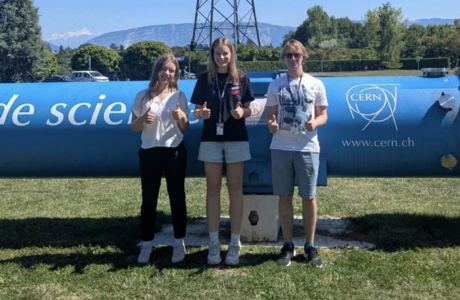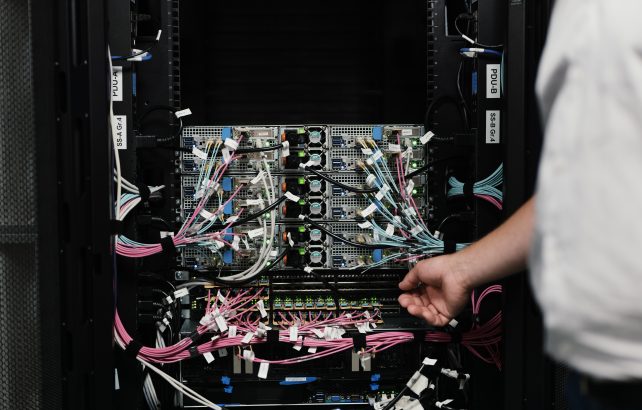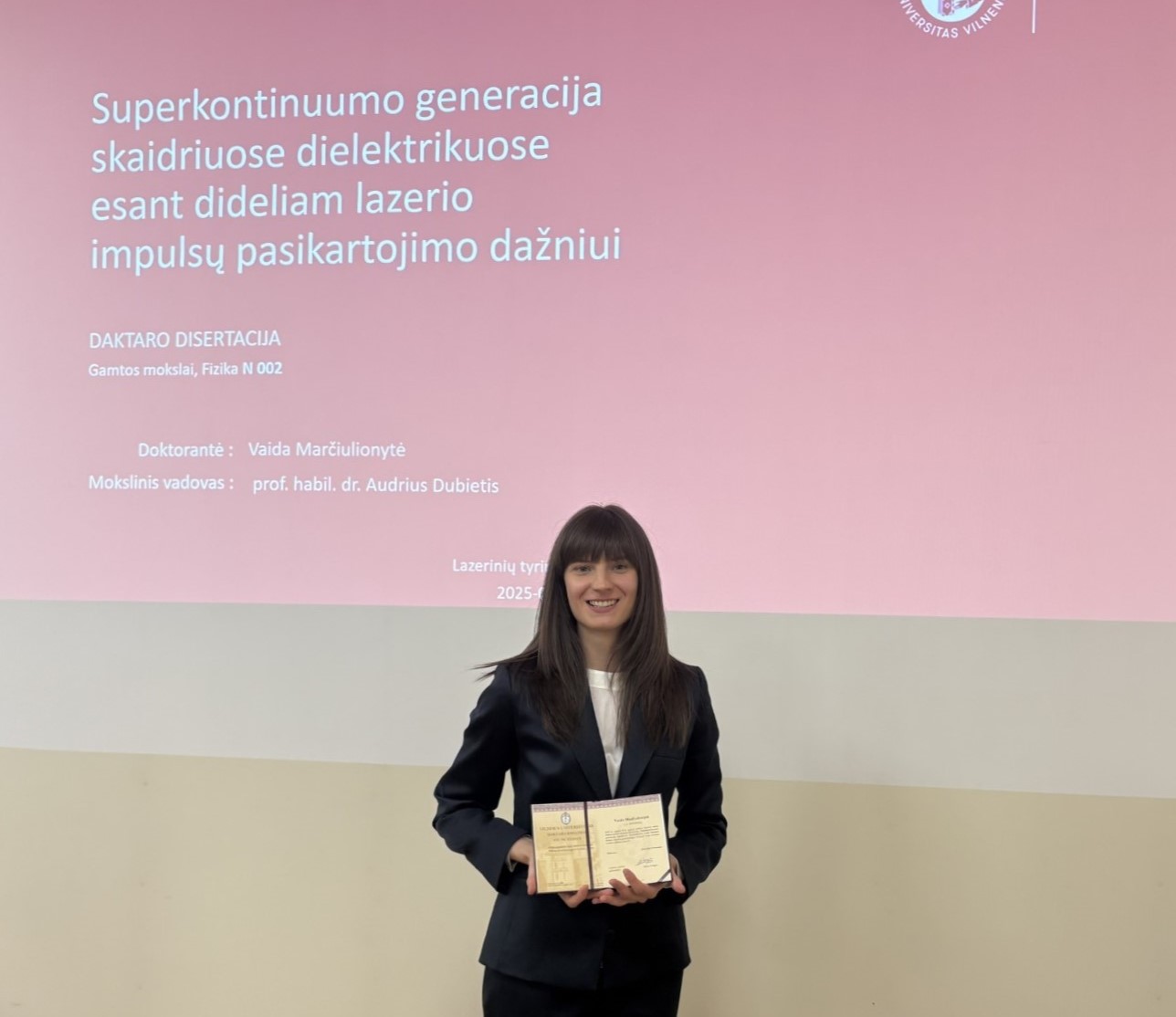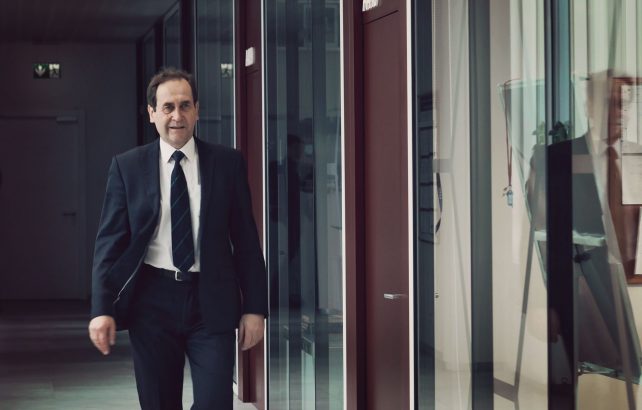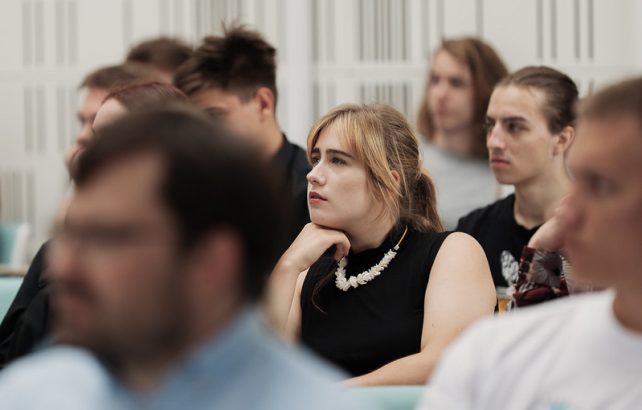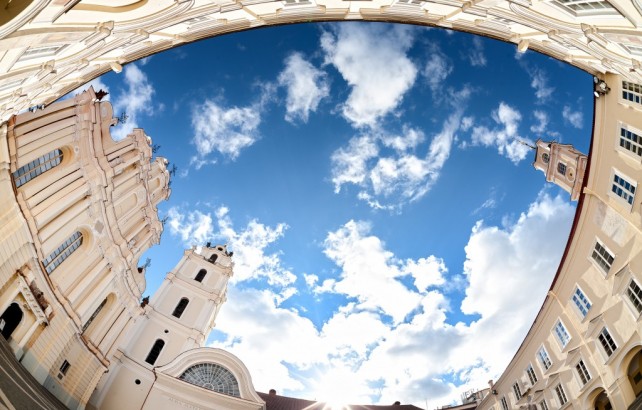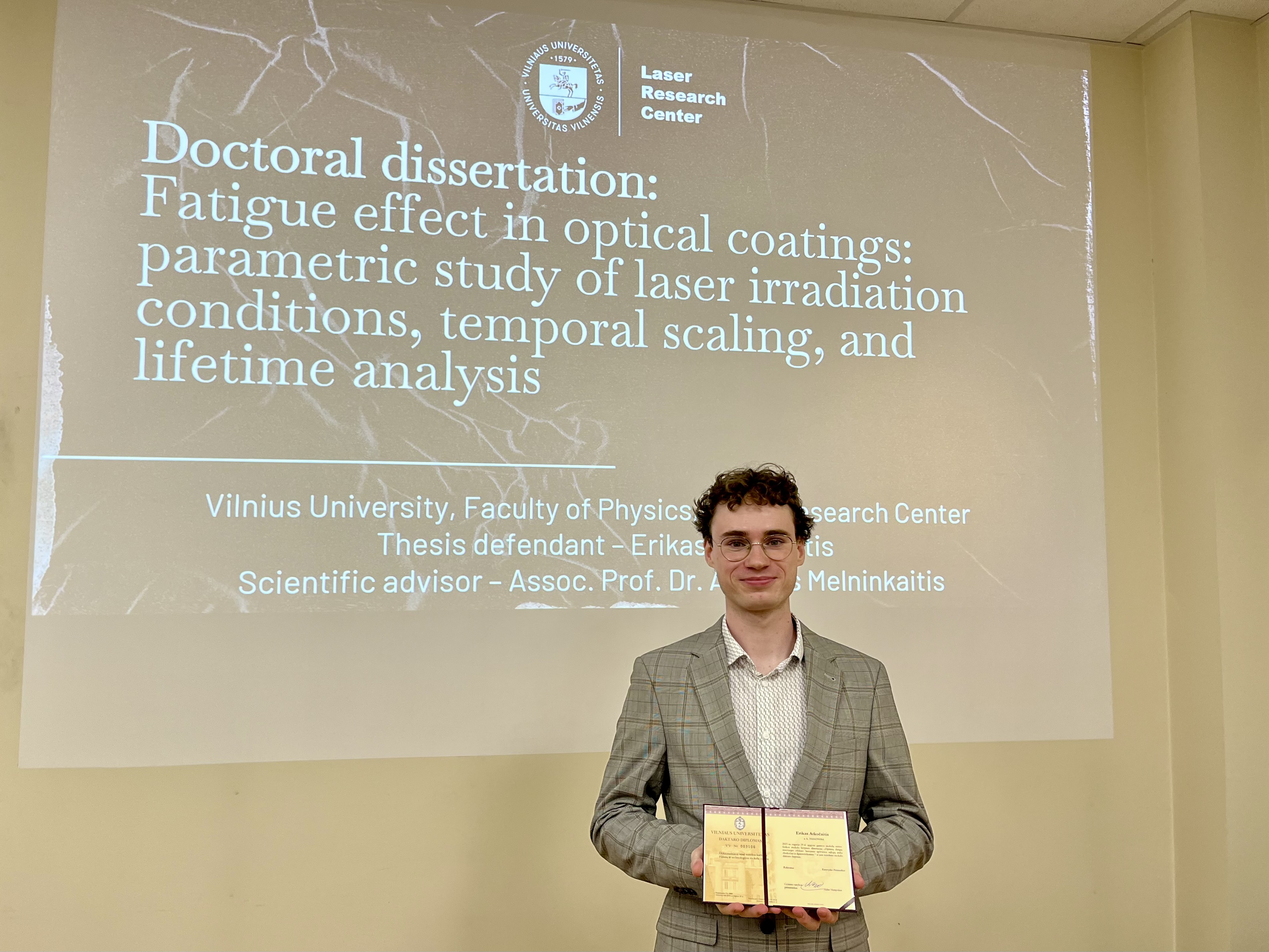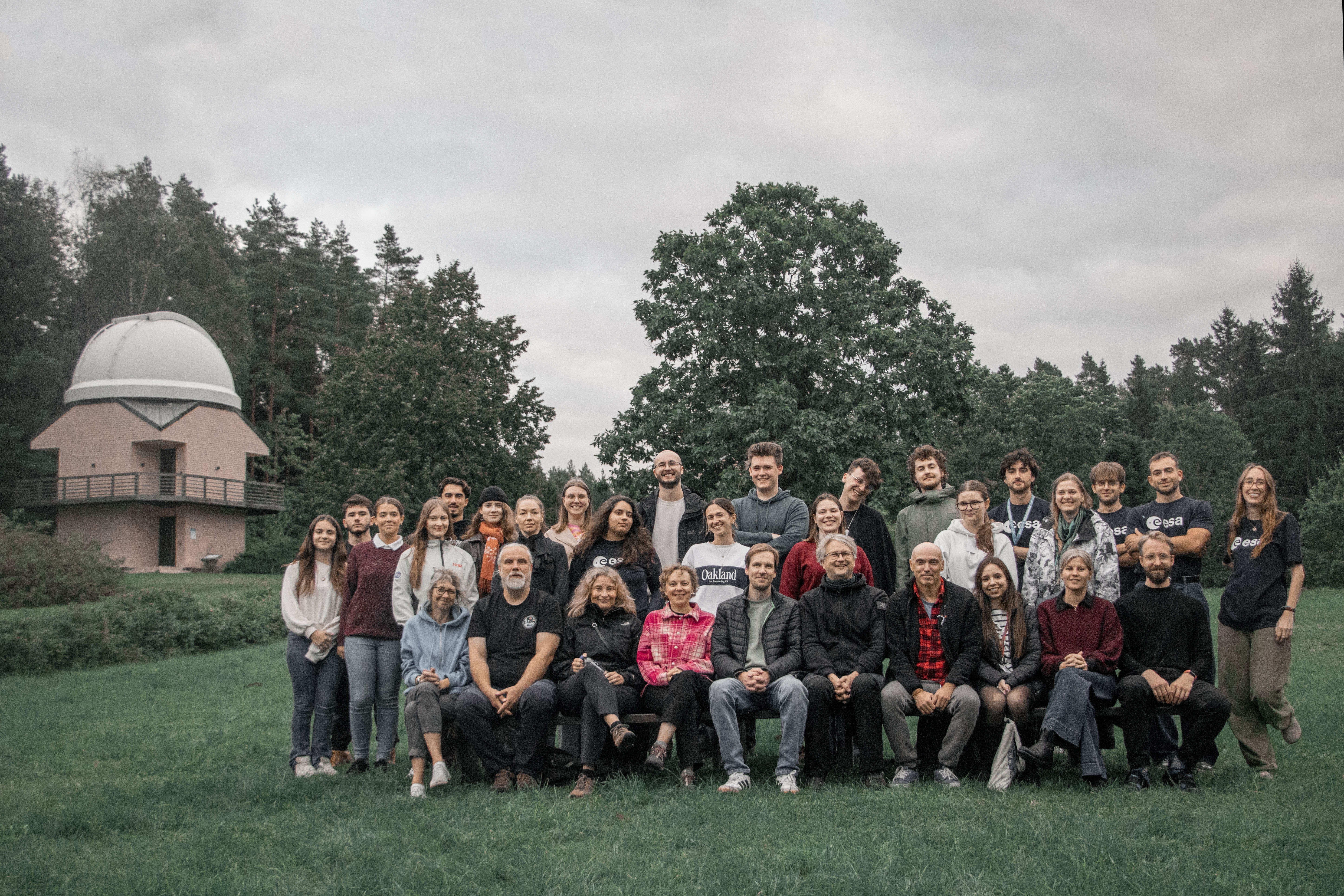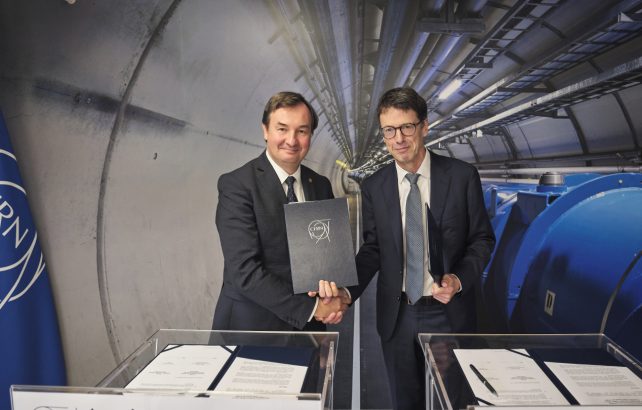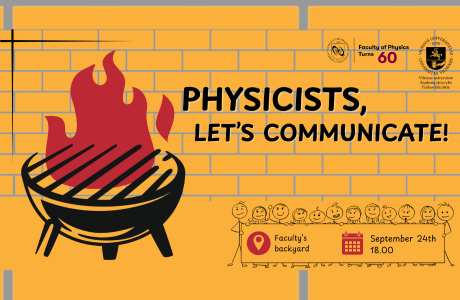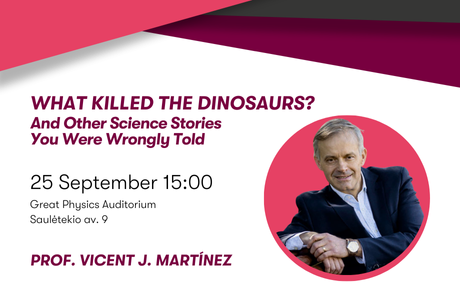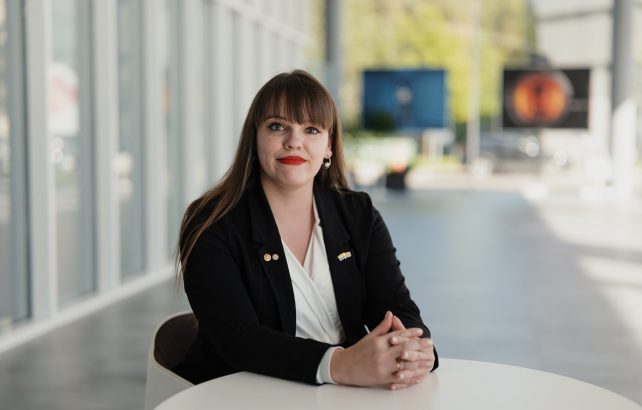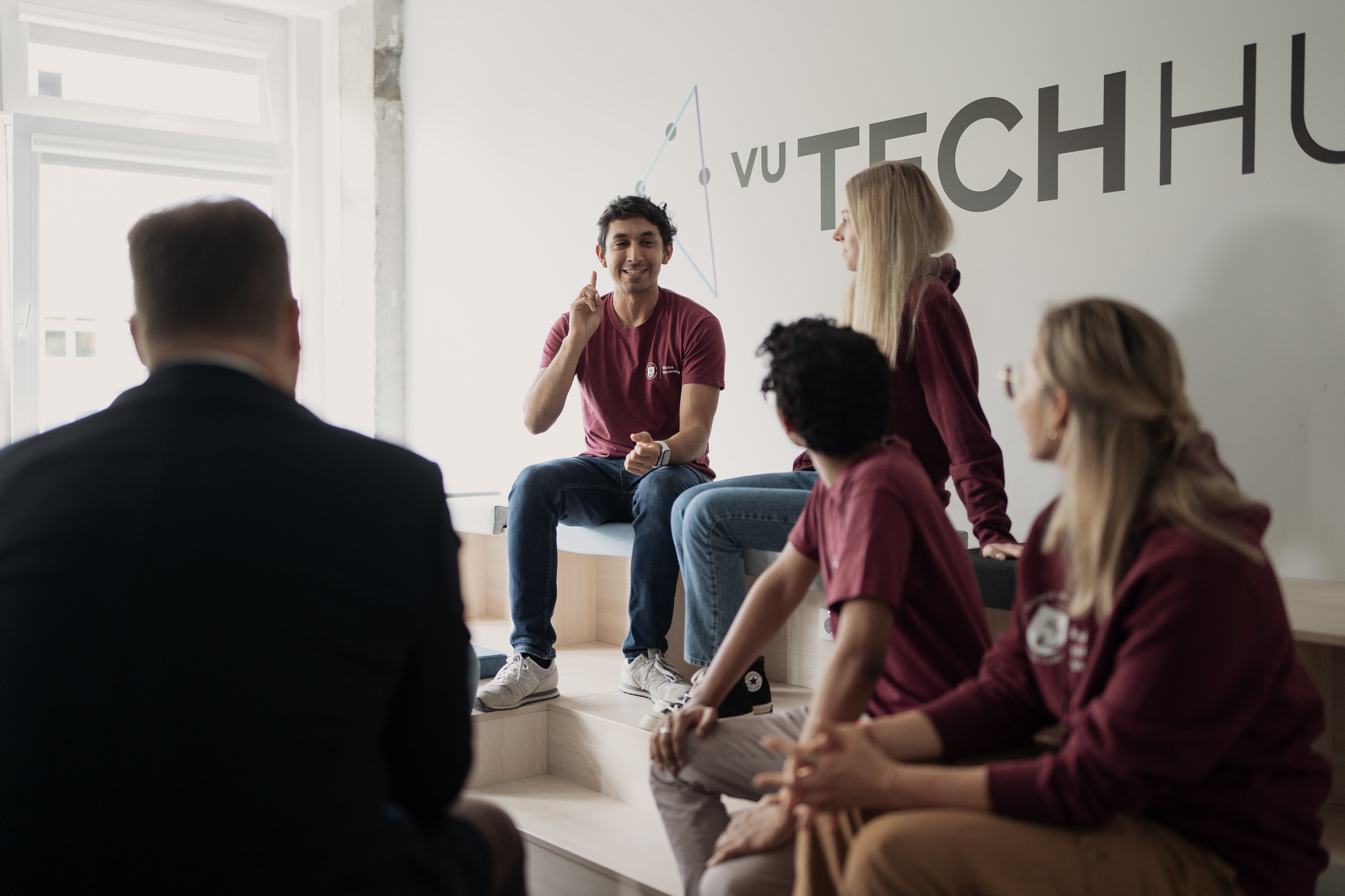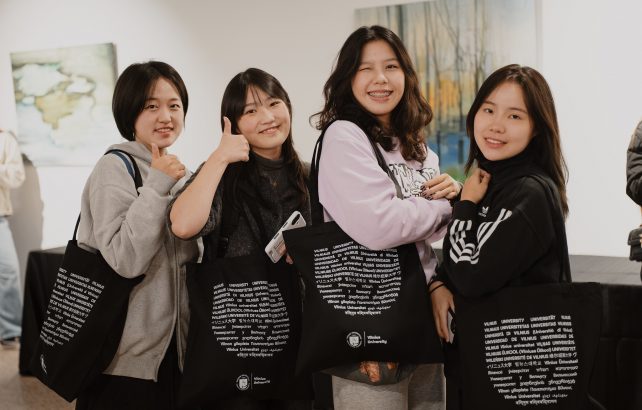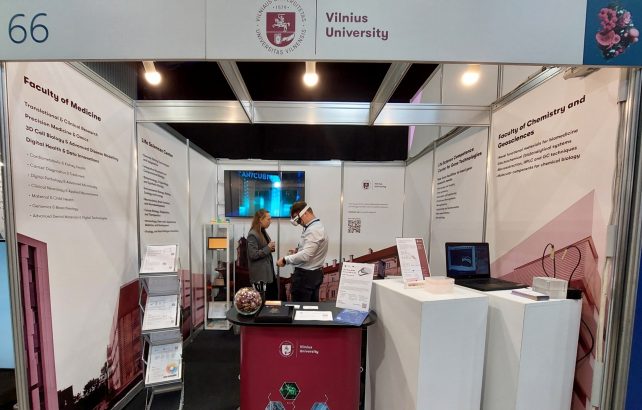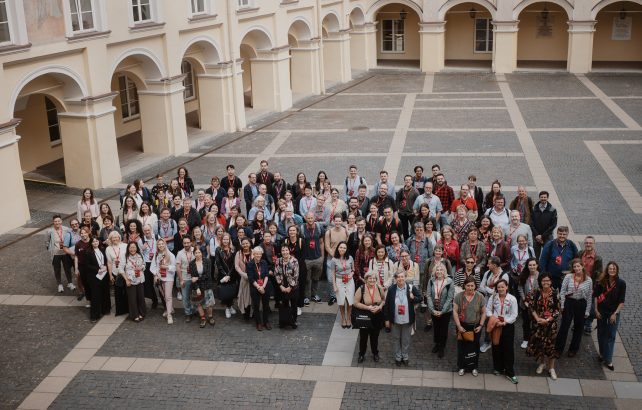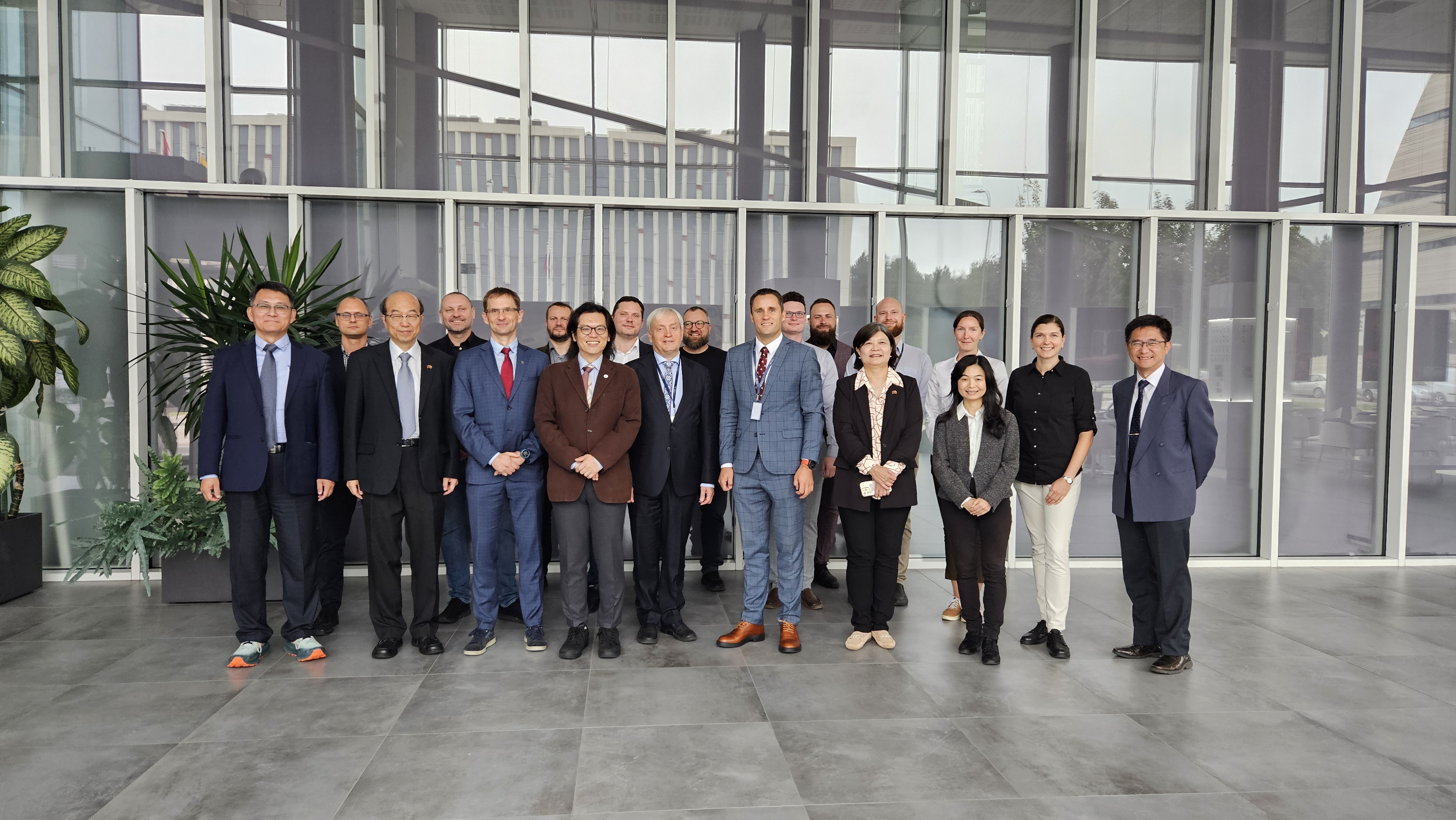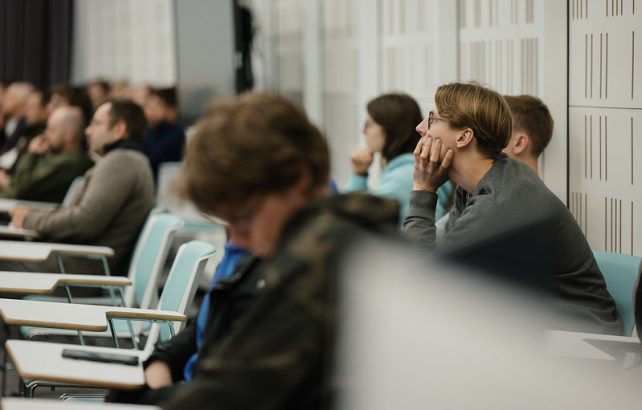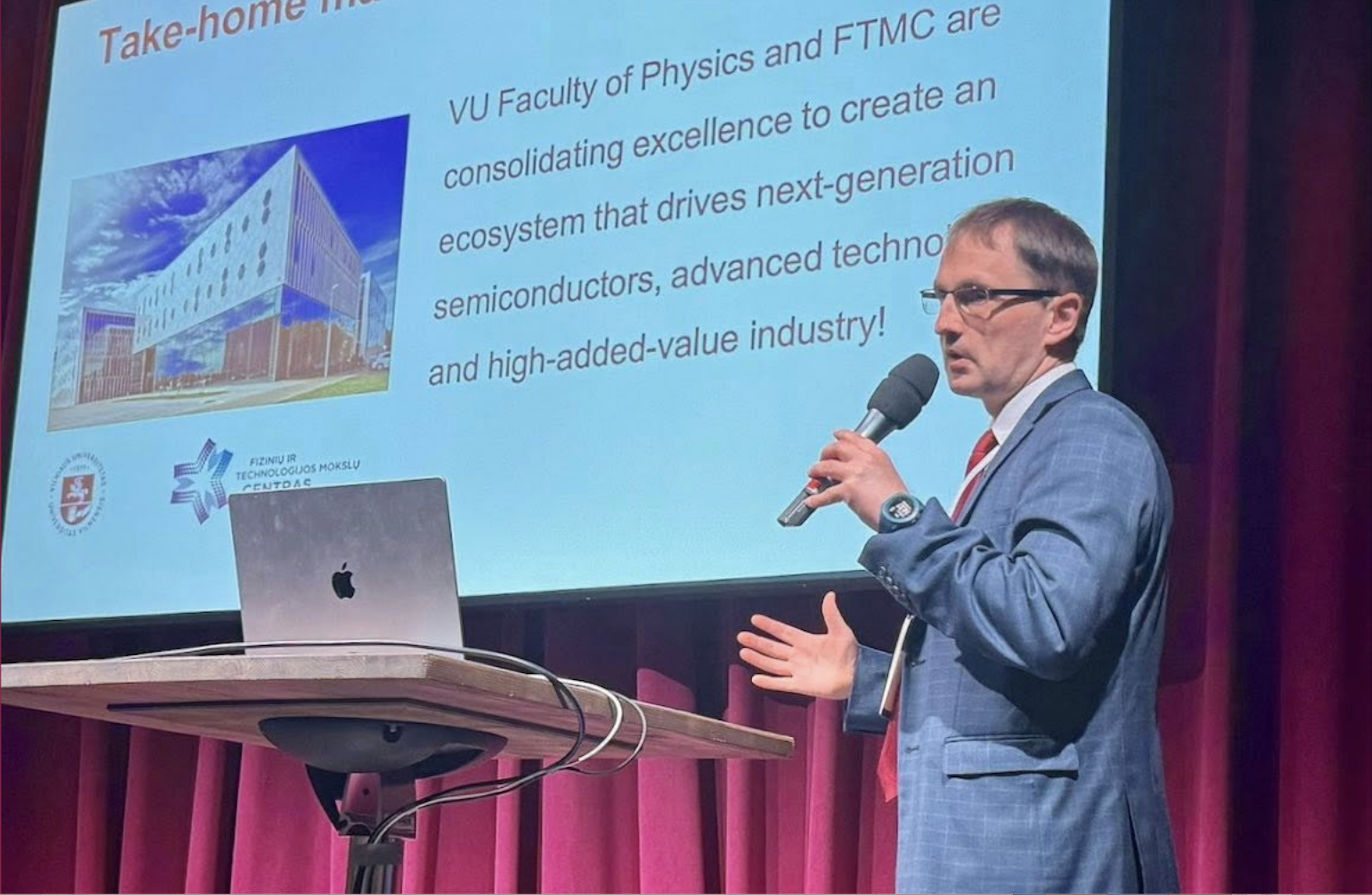Learning Beyond Borders: VU Students Share Insights from Their CERN Internship
Three Vilnius University (VU) students – Patrikas Styra, Eglė Lenkaitytė, and Rūta Lomsargytė – have returned from an intensive internship at the laboratory of CERN, the European Organisation for Nuclear Research, situated on the Swiss-French border. Over the course of several months, they immersed themselves in the world’s largest particle physics laboratory, gaining hands-on experience and contributing to cutting-edge scientific projects. Their work spanned advanced data analysis for the next-generation particle accelerator experiments, a virtual assistant for data analysis, and tools for experimental data quality monitoring– offering not only an incentive towards a deeper understanding of particle physics but also a chance to collaborate on global research initiatives.

